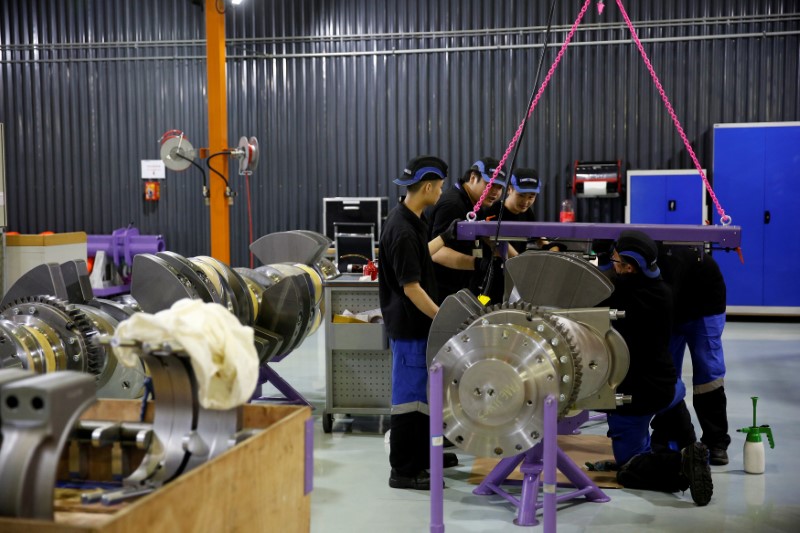BEIJING (Reuters) - China's June services trade deficit rose to the highest since at least the end of 2013 as Chinese spent more abroad, data from the foreign exchange regulator showed on Monday.
China's trade deficit in services was $29.5 billion (22.49 billion pounds) in June, up from $22.5 billion in May, the State Administration of Foreign Exchange (SAFE) said.
June's deficit was largely due to a $25.9 billion gulf in spending between foreign tourists and the Chinese, who splurge more abroad than visitors in China.
For the January-June period, China's services trade deficit stood at $130.9 billion, higher than the $109.0 billion in the first half last year, according to SAFE data.
The deficit in tourism spending for June was also the highest since at least the end of 2013 and was an increase of almost $8.2 billion from May's shortfall.
China's outbound tourism spending was in the spotlight last month after research from the U.S. Federal Reserve argued that a large amount of the money designated as having come from Chinese tourists globally should actually count as investment in assets.
China limits individual foreign exchange purchases to consumption purposes such as tourism, and SAFE has reiterated this year that individuals are not allowed to invest in overseas property under the capital account.
The Fed's research would mean that more money is escaping China's capital controls than thought, though analysts say outflows have eased considerably since last year.
"There is evidence that (some portion of) the tourism imports are actually disguised capital outflows," said Capital Economics' China economist Julian Evans-Pritchard.
"But the clear picture is that although China is still experiencing capital outflows, they are clearly at a much slower pace than they were at the end of last year."
China has cracked down on what it calls illegitimate capital outflows this year after a surge in money leaving the country contributed to weakness in the yuan.

New rules include information disclosure requirements on personal foreign exchange purchases, as SAFE said some individuals had exploited loopholes to move funds abroad for investment purposes.